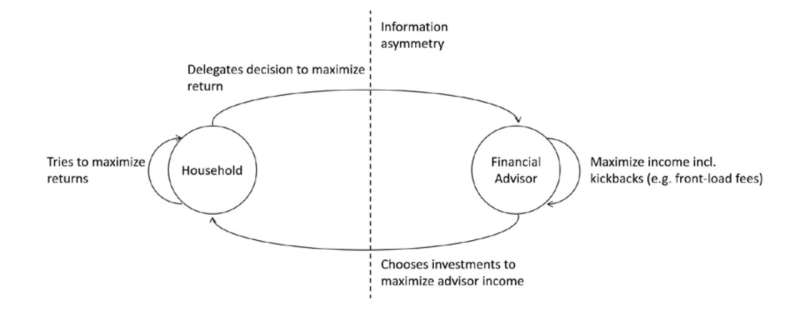This article has been reviewed according to Science X's editorial process and policies. Editors have highlighted the following attributes while ensuring the content's credibility:
fact-checked
proofread
Decline in wealth due to commission ban in Europe estimated at 375 billion euros annually

As part of the study titled "The impact of commission bans on household wealth: Findings from OECD countries," a team led by Professor Steffen Sebastian, Director at the Center for Finance at the University of Regensburg, investigated the impact of commission bans on the brokerage of financial investments.
The results are clear: household wealth in countries with commission bans grows significantly more than in countries without commission bans. The research team measured the difference in returns at 1.7 percent p. a. The study attracted widespread interest in both the political sphere and in the media—while at the same time, attracting strong criticism from the financial sector.
In an update of the study, the researchers now have estimated the financial loss for all affected countries in the EU for the first time. "Europe-wide, the damage amounts to 375 billion euros. For Germany alone, this is 98 billion euros—year after year. This corresponds to a loss of about 2,400 euros per household per year," says Professor Sebastian.
In addition, the criticism that people would save less due to a commission ban was investigated. "According to our calculations, there is no significant influence of a commission ban on the savings rate of households. Based on the available data, the claim that less would be saved due to a commission ban, is completely unsubstantiated," Sebastian confirms.
Denmark, Finland, the UK, the Netherlands, Norway as well as Australia and New Zealand have introduced commission bans at various points in the recent past, between 2005 (Finland) and 2019 (Australia). In these countries, alternative payment methods (e.g. according to advisory time or assets under management) have become well established, thanks to regulation.
The EU Commission wants to limit the harmful effects of commission-based sales of financial products, primarily through various transparency regulations.
However, relying on improving transparency alone is ineffective, as the example of the Netherlands shows: 13 failed amendments to the transparency regulations for financial advice made the legislator realize in the end, that there is no way around a commission ban. "It is regrettable that we in Europe apparently also have to go the Dutch route. It will cost consumers a fortune," Sebastian states.
In principle, the national legislators can also impose a commission ban on their own. However, this seems unlikely due to resistance on the part of many national governments. The researchers from Regensburg are now pinning their hopes on parliament, because the retail investor strategy still has to be confirmed by parliament and the European Council.
More information: Steffen P. Sebastian et al, The Effect of Commission Bans on Household Wealth: Evidence from OECD Countries, Universität Regensburg (2023). DOI: 10.5283/epub.54281
Provided by Universität Regensburg




















